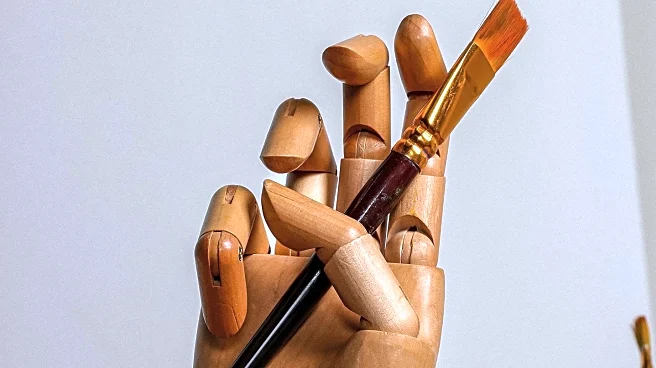What's Happening?
Sasa Hanten-Schmidt, a respected art expert in Germany, is facing accusations of violating the principle of independence due to her dual role as an expert and a participant in the art market. Critics argue that her involvement in galleries, artist management, and art collection may compromise her ability to provide unbiased evaluations. Her cooperation with the Database of Critical Works, which lists artworks with questionable authenticity, has sparked controversy over transparency and the impact on art market dynamics. The case has raised questions about the control and accountability of art experts in Germany.
Why It's Important?
The allegations against Hanten-Schmidt highlight potential conflicts of interest within the art market, where expert opinions can significantly influence the value and saleability of artworks. This situation underscores the need for transparency and independent oversight to maintain trust in the art market. The case also reflects broader concerns about the power of individual experts and the lack of regulatory mechanisms to ensure impartiality. As the art market continues to grow, these issues may affect collectors, dealers, and artists, prompting calls for reforms to safeguard the integrity of art evaluations.
Beyond the Headlines
The Hanten-Schmidt case may lead to discussions on establishing more transparent and accountable systems for art expertise. It could encourage the development of open expert forums and documentation processes to prevent bias and protect legitimate artworks from being unfairly devalued. The situation also raises ethical questions about the responsibilities of art experts and the potential influence of personal interests on professional judgments. Long-term, this case could drive changes in how art markets operate, emphasizing the importance of credibility and trust in expert opinions.








